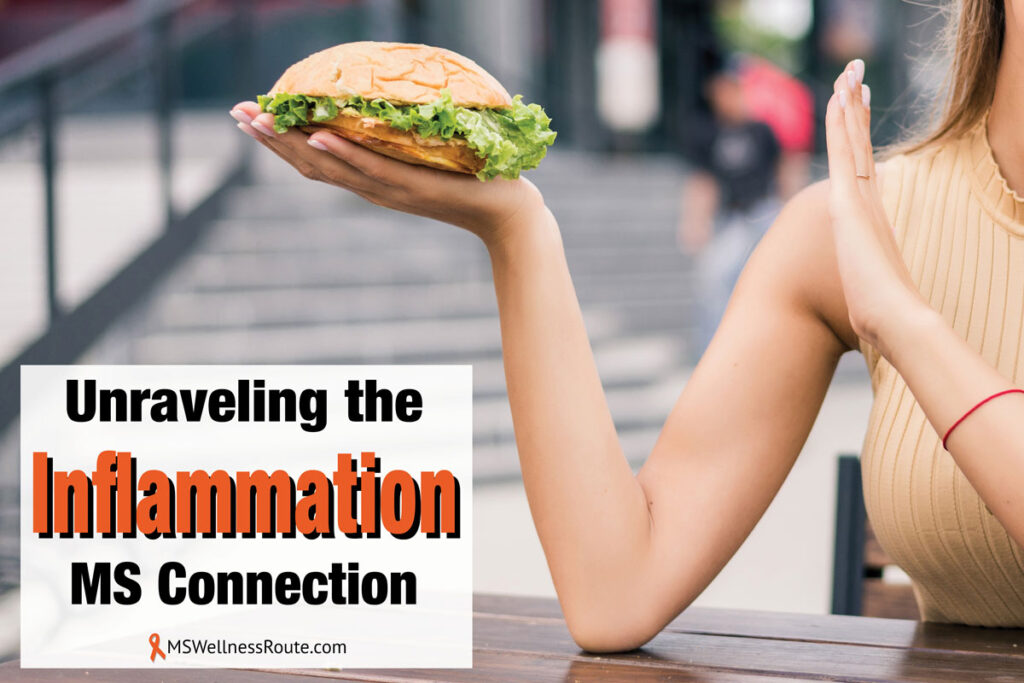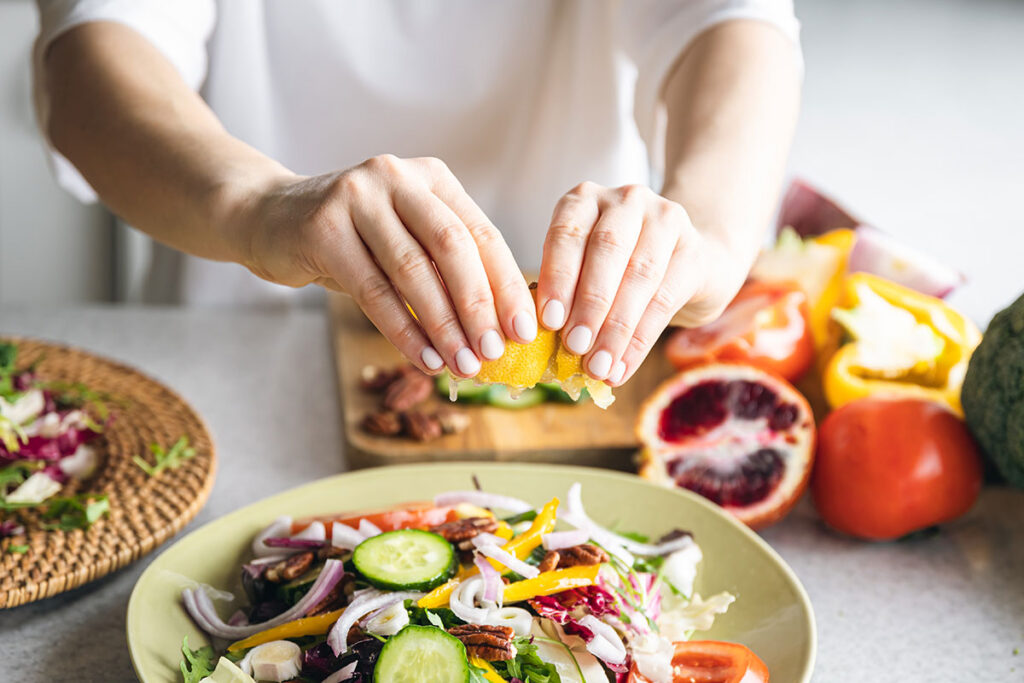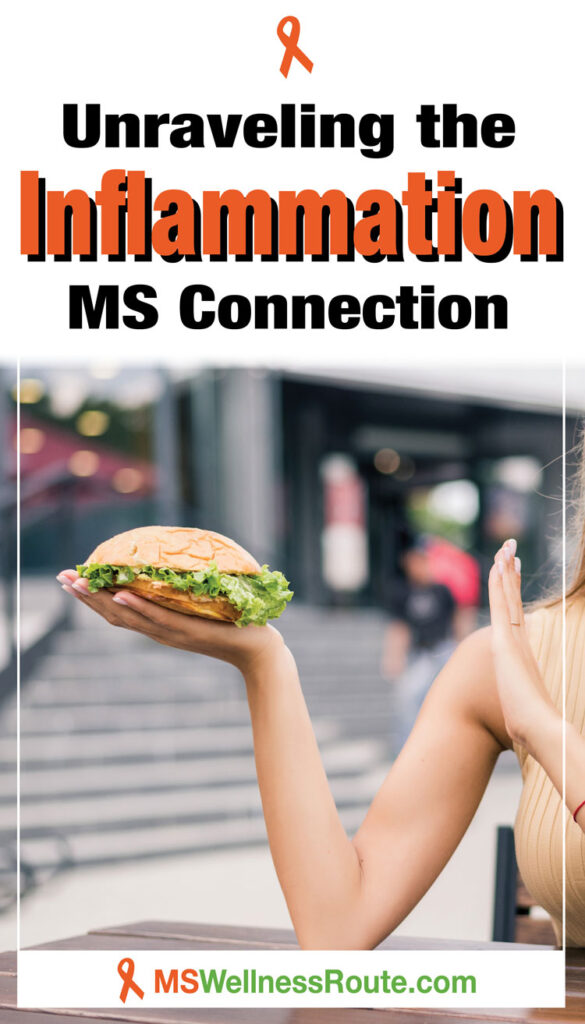
The cause of multiple sclerosis (MS) is due to chronic inflammation. It’s not an autoimmune disease where your body is attacking itself. Your body is fighting for you and trying to protect you due to chronic inflammation.
When you get a splinter, your body works hard by pushing it out. It’s the same with chronic inflammation, your body is trying to push it out. What that chronic inflammation is depends on you. Everyone is different, and different toxins have exposed us all.
Possible triggers to the onset of MS:
- Poor diet
- Infections (bacterial overgrowth, parasites, viruses, and yeast overgrowth)
- Environmental Toxins (heavy metals, mold, pesticides, etc.)
- Chronic Stress
- Hormones (adrenaline, cortisol, etc.)
The only thing researchers say people with MS have in common is the Epstein-Barr virus (EBV). They found nearly 100% of people with MS were previously infected with EBV. – It takes about 5-10 years after the EBV infection for the first MS symptom to appear.
However, nearly everyone gets EBV but only a small percentage get MS. Why one person gets MS and not everyone depends on your toxin load. Your immune system keeps you healthy by eliminating bacteria, pathogens, and viruses. For a variety of reasons cells in your body become injured and you end up with neurological damage.
It’s like the flu, where one person in your household gets sick but no one else does. Their immune system isn’t as strong to fight off the infection. Chronic inflammation overloads the immune system, making it harder to fight.
To Learn More About The EBV and MS Study Read:
Your Choices Matter

Image by gpointstudio on Freepik
What you eat matters, what you put on your body, and how you think matters. MS drug manufacturers want you to believe you can’t live without their drugs. They use fear factors to get you to start one of their drugs. Some neurologists get paid an incentive for pushing MS drugs on you, mine did.
When I told my neurologist I was using nutrition and natural lifestyle choices he told me “Diet doesn’t work.” He started lecturing me and then my husband. But, I knew I was making the right choice.
Don’t let doctors scare you into something you don’t want to do. Trust your instincts! It’s your body and you’re the one living with it. MS is NOT a death sentence. I’ve been living drug-free since 2005 and I’m not wheelchair-bound. You can live a good quality life despite having MS.
When I was first told I had MS my neurologist told me there was nothing they could do. He told me to buy a certain book to learn about MS and then to “hope for the best and plan for the worst.” – That was it, I was on my own. I remained positive even though it scared me.
I’m not here to tell you to stop or start a drug treatment, that is your personal choice. Conventional drug therapies can’t stop nerve tissue damage; they’re not a cure. If they work, they only slow the disease process down. – They do not stop the progression of MS.
Foods to Avoid
How you live your life can stop MS and possibly reverse your symptoms. How do I know? Because I’ve done it along with many other people with MS. I reversed my severe heat intolerance that I suffered with for about 20 years. I also reversed other symptoms such as Raynauld’s syndrome or Raynauld’s phenomenon. Granted not all your symptoms may reverse. But, stopping the disease process is your number one goal.
It’s important to eat foods that heal and avoid foods that cause diseases. Eat mostly fruits, vegetables, and herbs, and avoid the following foods:
- Dairy
- Gluten
- Refined sugar
- Artificial flavors and sweeteners
- Natural flavors
- Corn (it’s mostly a GMO)
- Soy (it’s mostly a GMO)
- Canola oil (it’s mostly a GMO)
- Pork (it’s high in fat and contains higher concentrations of parasites)
- Farmed fish (the fish have parasites so they’re washed in toxic chemicals)
- MSG (it causes brain inflammation)
- Citric acid (processed citric acid mostly comes from corn)
Avoid these to heal faster, you can add them back after you’ve healed:
- Beans
- Gluten-free grains
Eggs are a touchy subject. Some experts say eggs are okay to eat while others say you should avoid them. The Wahls Protocol recommends people should avoid eggs. On PubMed (a U.S. health database) studies were also conflicting on whether eggs were healthy. I avoid eggs because they give me gut pains (they always have). To heal faster I think it’s best to avoid eggs.
Don’t be afraid to eat fruit. I avoided most fruit for over eight years. Then I researched it and found fruit does not spike your blood sugar due to its fiber content. Antioxidants, fiber, minerals, phytonutrients, and vitamins load fruits. Fruit is healing!
As the saying goes, “An apple a day keeps the doctor away.”
Fuel For Your Brain and Body

Image by pvproductions on Freepik
Glucose (blood sugar) fuels your brain and cells; it’s the body’s main source of energy. The body also needs water and mineral salts also known as electrolytes. Glucose and mineral salts are crucial for the central nervous system (CNS).
Neurons are particularly sensitive to changes in glucose levels. A stable supply of glucose is essential for their proper functioning. Glucose is essential for the central nervous system. It energizes cognitive functions, memory, and overall brain/spinal cord functioning. Maintaining stable blood glucose levels is crucial for optimal brain health.
People with MS are often dehydrated due to bladder issues. Being dehydrated means you’re not getting enough of these important mineral salts. Drink enough water throughout the day to keep from getting dehydrated. Add freshly squeezed lemon or lime juice to your water because they are rich in electrolytes. Also, drink clean filtered water, I own a Brita XL Water Filter Dispenser that sits on my countertop.

Several minerals are vital for optimal CNS neuron and cell functioning. Some of the key minerals that are important for the central nervous system include:
- Calcium
- Magnesium
- Potassium
- Zinc
Foods that heal the central nervous system include:
- Berries especially wild blueberries
- Fruit such as bananas, grapes, and peaches
- Herbal teas such as camomile, ginkgo biloba, lemon balm, nettle leaf, and oatstraw
- Herbs such as rosemary, sage, and turmeric
- Leafy greens such as romaine lettuce and spinach
- Vegetables such as asparagus and broccoli
Healthy Lifestyle Habits

Image by marymarkevich on Freepik
Lifestyle habits are just as important. Use clean body care products and “green” household products. Check the Environmental Working Groups website to find healthier products. Clean up the air in your home by avoiding air fresheners and scented candles.
New clothes, flooring, furniture, and paint all have toxic chemicals. Granted you can’t avoid these but you can be aware and try to reduce your exposure. When buying new bedding, clothes, and towels wash them before using or wearing them.
Get enough sleep, if you are sleep deprived your health will suffer. Get between 7-9 hours of sleep each night. If you have a hard time falling asleep, turn the lights down, avoid screen time, and have it quiet before bed. Stop drinking a couple of hours before bed so you don’t have to get up as often in the middle of the night.
Stay active!
If you don’t exercise regularly, several potential health consequences may occur including:
- A decline in balance and coordination, increasing the risk of falls and injuries
- Decrease in joint flexibility, leading to stiffness and reduced range of motion
- Decreased bone density, potentially leading to osteoporosis and an increased risk of fractures
- Inactivity can lead to a sedentary lifestyle and fatigue
- Increased feelings of stress, anxiety, or depression
- Lack of movement and exercise can lead to muscle weakness and atrophy
- Reduced cardiovascular health
Go for a walk or exercise such as swimming, tai chi, or yoga. There are also several online gyms for MS you can do in the comfort of your own home. I use OptimalBody Personal Fitness. The owner also has MS so he knows from experience which exercises work. These exercises are for any level of disability including people in a wheelchair.
Diet, lifestyle and your environment make all the difference – your choices matter. Next time you’re tempted to eat something you shouldn’t think about what’s more important. The taste or your health?
Even how you think makes a difference. If you believe you will never get better you may not. Positive thinking is powerful. Studies showed cancer patients that had positive outlooks had better odds of surviving.
Chronic Inflammation and MS
Chronic inflammation throughout your body is what triggered the onset of MS. Use these steps to reduce inflammation in your body and get your life back:
- Prioritizing nutrition
- Incorporating regular exercise
- Taking time for self-care
- Choosing a clean environment
- Handling stress effectively to improve your health and well-being
Your lifestyle unlocks the link between chronic inflammation and MS. You have the power to heal yourself!

The Ultimate Guide to Surviving & Thriving with MS
Unlock the power of a healthy lifestyle with this exclusive ebook! Discover practical strategies and expert advice on managing MS naturally through nutritious eating and mindful living. This comprehensive guide is packed with wellness tips, and lifestyle recommendations tailored specifically for you. Take control of your health and embark on a transformative journey toward a balanced and vibrant life. Get your hands on this invaluable resource and start thriving today!
Want to remember this health tip? Pin it to your Pinterest board!

Image by diana.grytsku on Freepik
Resources:
https://pubmed.ncbi.nlm.nih.gov/33313088/
Chronic Inflammation’s Impact on MS





